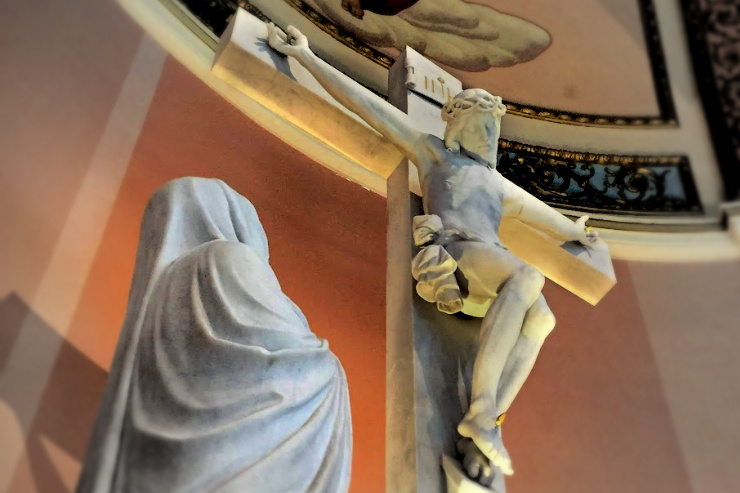“Remember the ultimate goal: to become like Christ. “
As we begin this penitential season for Lent, the first reading for Mass today gives us an important reminder regarding our approach to fasting and penance. The Lord is reprimanding the way the people are fasting. It’s not a condemnation of the practice of fasting, which he has commanded (in the Old Law and in the New), but a reminder that these practices have to be accompanied by a merciful, loving, and repentant heart.
“‘Why do we fast, and you do not see it?
afflict ourselves, and you take no note of it?’
Lo, on your fast day you carry out your own pursuits,
and drive all your laborers.
Yes, your fast ends in quarreling and fighting,
striking with wicked claw.” (Isaiah 58:3-4)
The Lord explicitly tells the people through the prophet Isaiah that they can have all the externals of fasting, they can go around with sackcloth and ashes and starve themselves – but these things are abominations to him if they are not accompanied by good works. The opening chapter of Isaiah is even more explicit:
“’What do I care for the multitude of your sacrifices?’ says the Lord” (Isaiah 1:11).
Again, this doesn’t mean we shouldn’t sacrifice, do penance, and fast. It is a reminder that perhaps we should look at why and how we are doing those things.
Lent is about conforming our lives to Christ. At Easter, we should be more like him. It’s not a nice checklist of how hard I worked or how much I suffered. Nor is it a contest of who can take colder showers or give up more technology. It’s not a Pelagian quest of working hardest to get to Heaven. But it’s also not just a time to be “nicer” or a time to just adopt a bunch of good habits.
How do I conform myself to Christ? By prayer, fasting, and almsgiving; sacrificing by giving up good things, uniting my sufferings to His, and growing in temperance and self-control; increasing my prayer life and looking for ways to serve my brothers and sisters; praying to grow in mercy, God’s greatest attribute, especially towards those around me who are hurt and wounded.
So let’s go back to the question of fasting. In the first reading today, the Lord seems to be saying not to bother, and he’d rather us practice the corporal works of mercy. Well, the answer is this – what has been called the best Christian answer to any theological question – “both and.” Should you give something up for Lent? Yes. Should you do something for Lent? Yes.
We are called to mortification during Lent. You should be adopting a practice that makes you uncomfortable. At the same time, if I do that while remaining in my sins, I’m missing the point. St. Josemaria Escriva points out, “the best mortification is that which overcomes the lust of the flesh, the lust of the eyes, and the pride of life in little things throughout the day. Ours should be mortifications which do not mortify others, and which give us more ‘finesse’, more understanding, and more openness in our dealings with everybody. You are not mortified if you are touchy; if your every thought is for yourself; if you humiliate others…” (Christ is Passing By, 9)
Does my Lenten penance make me grouchy? This doesn’t mean we don’t mortify ourselves because we are touchy, but rather it means I need to work on being more patient, more kind, and better at suffering.
May the penances we adopt this Lent, the fasting and abstinence commanded by the Church, and the increased prayer and service to our brothers and sisters transform us. Remember the ultimate goal: to become like Christ. As the blessing of the ashes reminded us on Wednesday, may we “through a steadfast observance of Lent, gain pardon for sins and newness of life after the likeness of [His] Risen Son.”
Please help spread the Gospel! Share this article on Facebook and other social media.

Please help us continue our mission!
We welcome both one-time and monthly donations. A monthly subscriber giving just $10 a month will help cover the cost of operating Integrated Catholic Life for one day! Please help us bring enriching and inspiring Catholic content to readers around the world by giving today.
Thank you and may God Bless you for supporting the work of Integrated Catholic Life! Integrated Catholic Life Inc is a nonprofit public charity under Internal Revenue Code Section 501(c)(3). These contributions are tax-deductible as provided under U.S. tax laws.















